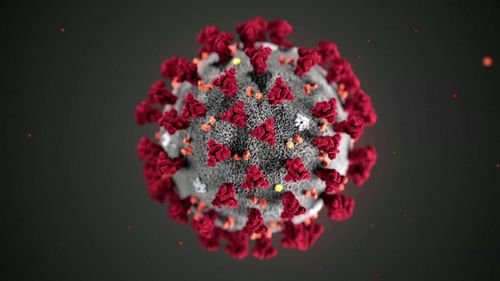What you need to know about coronavirus on Monday, September 7

“I have had more panic attacks this year than in my entire life combined.”
Aritri Paul, who lives in Kolkata, West Bengal, has been experiencing terrifying episodes more frequently since India went into coronavirus lockdown in March. “My heartbeats are heavy. It becomes difficult to catch my breath. My hands shake and get sweaty,” she said.
Before Covid-19 struck, India had the highest suicide rate in south-east Asia. Now experts say the country’s mental health system is being pushed to the limit. Health professionals are reporting an increase in self-harm, and the vast majority of people experiencing problems do not have access to adequate treatment. “The system was already creaking and overburdened, now with Covid, we are experiencing the catastrophe of increased demand, woeful supply, and fatigued frontline workers,” said Nelson Moses, founder of the Suicide Prevention in India Foundation.
India reported more than 90,000 new cases on Monday, taking its total to more than 4.2 million and surpassing Brazil as the second-most infected country globally behind the United States.
The one silver lining is India’s relatively low death rate. As of Monday, around 71,000 people had died of the virus there, compared to around 189,000 fatalities in the US and 126,000 in Brazil, according to the Johns Hopkins University (JHU) tally.
The country of 1.3 billion has a death rate of five virus-related fatalities per 100,000, lower than more than 80 countries and territories, according to JHU data. For comparison, the US death rate is 58 per 100,000 people, while Brazil’s is 60 per 100,000 people, according to JHU.
India has seen a huge spike in infections following a new phase of reopening last week, and the government’s push to return to normality continues despite the growing case numbers. Subway trains have been allowed to run for the first time in months starting Monday, while gatherings of up to 100 people will be permitted at sports, entertainment, cultural and religious events outside of hotspot areas from September 21. Schools and colleges will remain closed until the end of September.
YOU ASKED. WE ANSWERED
Q: What precautions should I take when riding in a vehicle with someone from another household?
A: People from different households riding in a car together should wear face masks, said Dr. Aaron Hamilton of the Cleveland Clinic.
“You should also wear one if you’re rolling down your window to interact with someone at a drive-thru or curbside pickup location,” Hamilton said.
It’s also smart to keep the windows open to help ventilate the car and add another layer of safety, said Dr. Anthony Fauci, director of the National Institute of Allergy and Infectious Diseases.
Send your questions here. Are you a health care worker fighting Covid-19? Message us on WhatsApp about the challenges you’re facing: +1 347-322-0415.
WHAT’S IMPORTANT TODAY
Putin’s vaccine meets opposition from Russia’s frontline workers
Russia’s claim of victory at being the first to approve a coronavirus vaccine was met with widespread concern and unanswered questions over its safety and effectiveness — and not just abroad.
Russian authorities have singled out teachers — as well as doctors — as key workers who will get early access to the vaccine, even before crucial Phase 3 human trials have finished. But, as Zahra Ullah and Anna Chernova report from Moscow, few — if any — have so far taken up the offer.
Mask and vaccine protests show Germany is a victim of its own success
Germany has been lauded for its pandemic response, thanks to widescale testing and a fast response to the outbreak that has helped keep its mortality rate low — despite a high number of reported Covid-19 cases. Yet recent protests against the restrictions worry experts, who say that the country has become a victim of its own success, allowing for the spread of coronavirus skepticism.
“Virologists say there is no glory in prevention; if prevention is successful, people don’t see the danger,” Thorsten Quandt, a professor at University of Münster who has been researching right-wing conspiracies in the pandemic, told CNN. “The irony is the less you can feel it, and more successful you are with pandemic measures, the more people say we should stop [those measures].”
Battling an eating disorder during a pandemic
When CNN’s Julie Gallagher started a residential eating disorder treatment in March, the center’s routines were strict, but there were hints of normalcy, like Thursday evenings at the beach. Then Covid-19 came to the US and her already small world became even smaller. The center banned visitors, and the beach trips were canceled.
“I slowly realized the magnitude of our new reality. People started dying. Hospitals became overwhelmed and didn’t have protective equipment for staff … And I felt ridiculous in my situation. It took me a while to understand that even though the world was experiencing a crisis, it didn’t mean I wasn’t also sick. It didn’t mean I didn’t deserve to get care,” she writes.
Pulmonary rehabilitation can help patients recover faster
Covid-19 can have lasting impacts on the body, but there is hope that patients can not only recover over time, but can do so more quickly with rehabilitation.
Two early research reports to be presented today at the European Respiratory Society International Congress describe how severe infection with the coronavirus can leave lasting lung damage. “The bad news is that people show lung impairment from COVID-19 weeks after discharge; the good news is that the impairment tends to ameliorate over time, which suggests the lungs have a mechanism for repairing themselves,” Dr. Sabina Sahanic, a clinical PhD student at the University Clinic in Innsbruck, Austria, who was involved in one of the reports, said in a news release. So far, only study abstracts of the new research have been released and the findings are preliminary, but they shed new light on the long-term impacts of the virus, Jacqueline Howard reports.
ON OUR RADAR
- New York state has maintained a Covid-19 infection rate below 1% for 30 straight days — but that’s no reason to think the fight is over.
- The UK recorded its highest daily case number since May on Sunday.
- Australia has signed a $1.2 billion agreement for nearly 85 million coronavirus vaccine doses.
- A farmer planted over 2 million sunflowers to provide some respite in this rough year.
- Northeastern University dismisses 11 students for violating the school’s public health protocols.
- A popular San Francisco cabaret is making the best of the shutdown with a delivery service that offers a lot more than just food and drinks.
- At least 147 Covid-19 cases and three deaths are now linked to an August wedding reception in Maine.
- South Korea wants to check citizens for coronavirus and seasonal flu in one test.
TOP TIPS
This 5-minute meditation routine will calm you down
With so many new anxieties in the world today, achieving a healthy frame of mind can seem more challenging than in years past. Having a daily moment of intentional quiet can go a long way toward a better outlook. Try this five-minute meditation routine that combines both yoga and balance to steady the mind, utilize the breath to become more mindful, and reduce stress.




